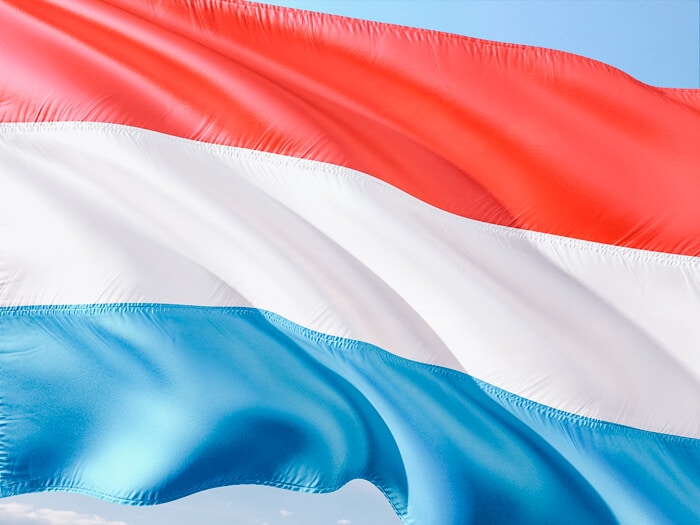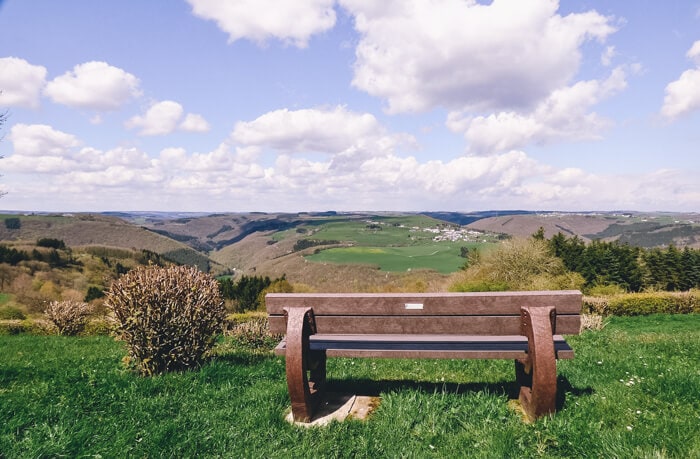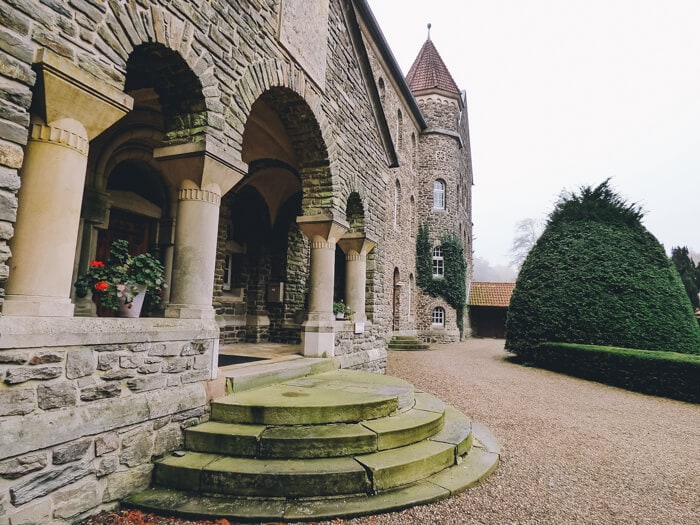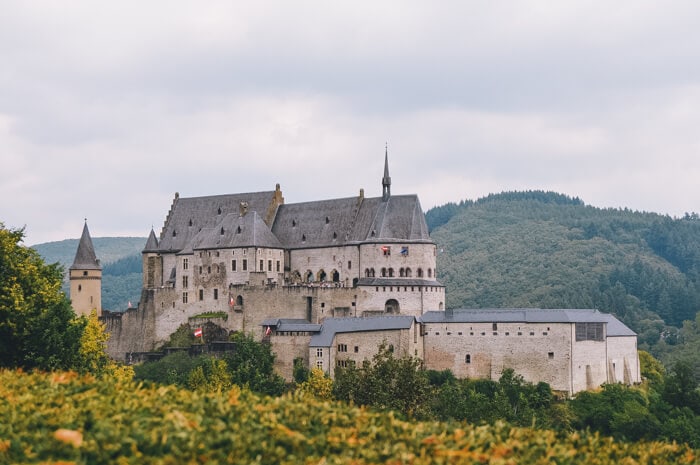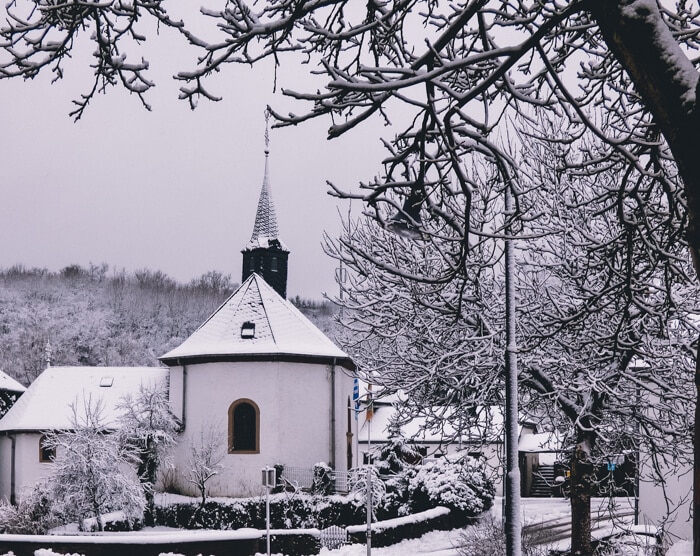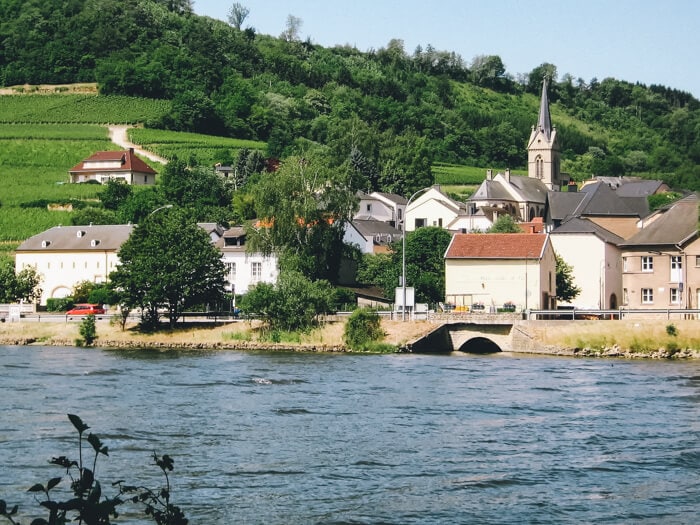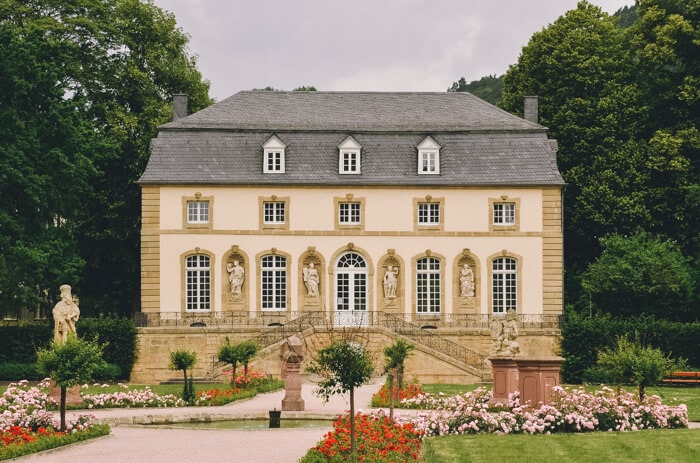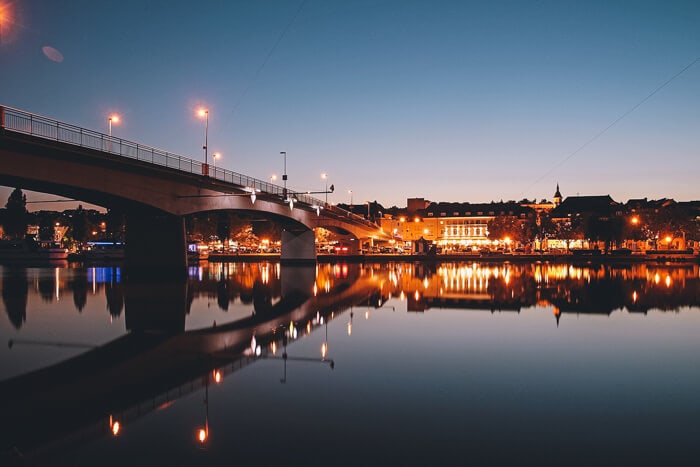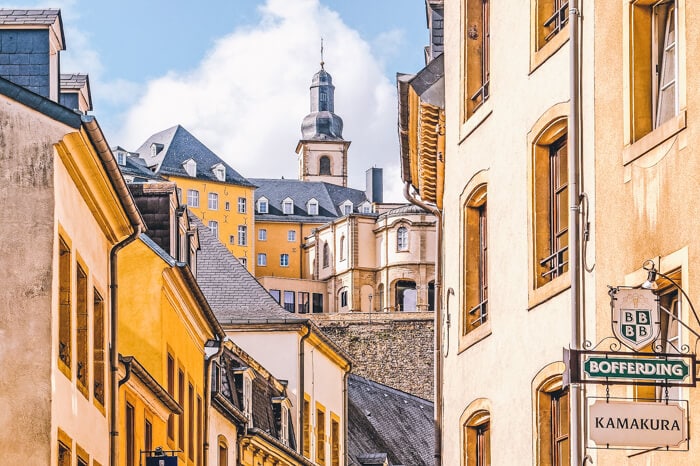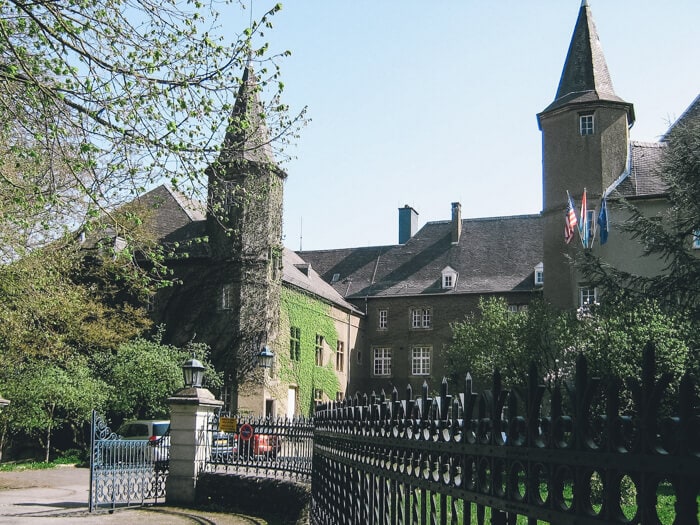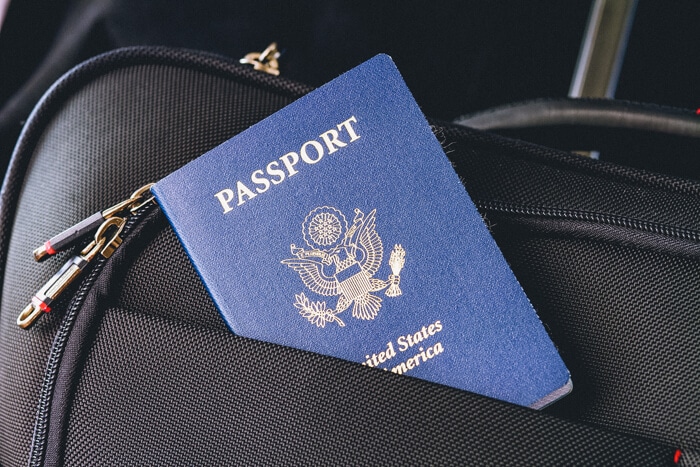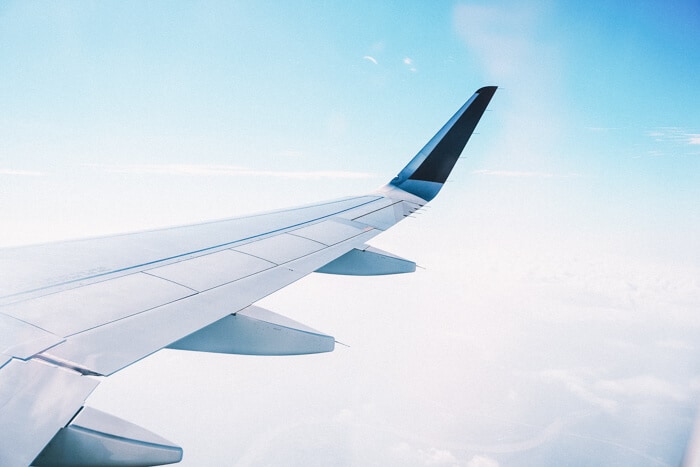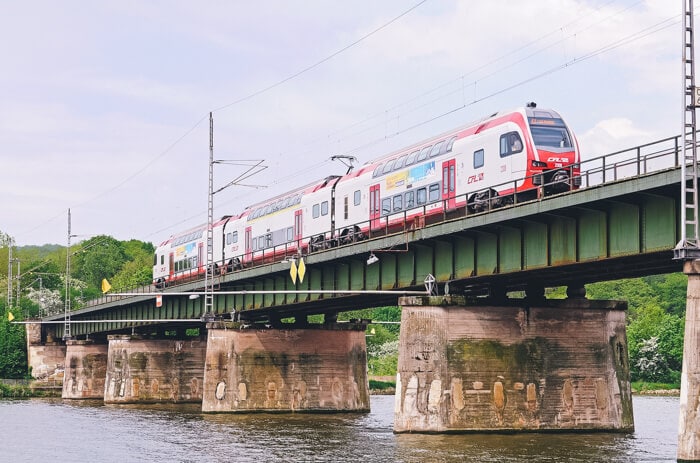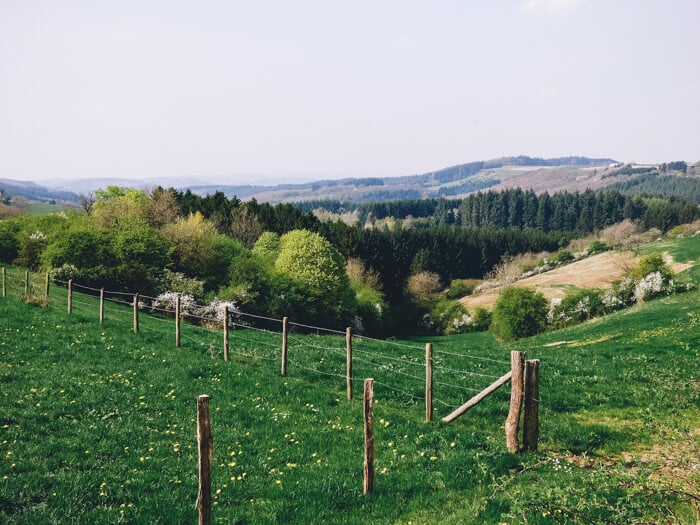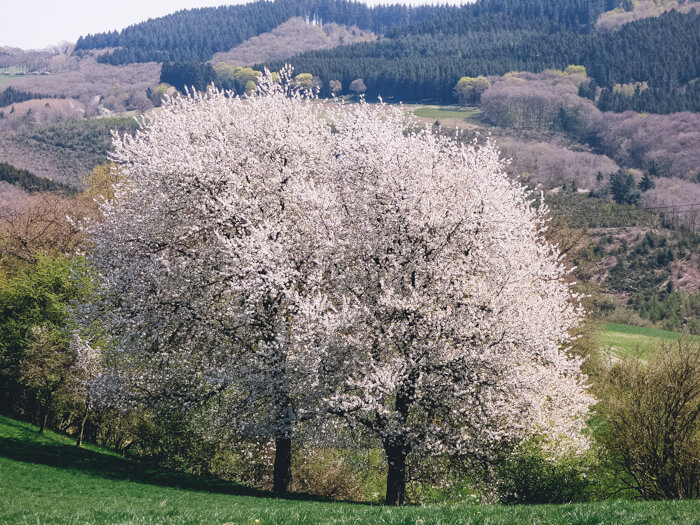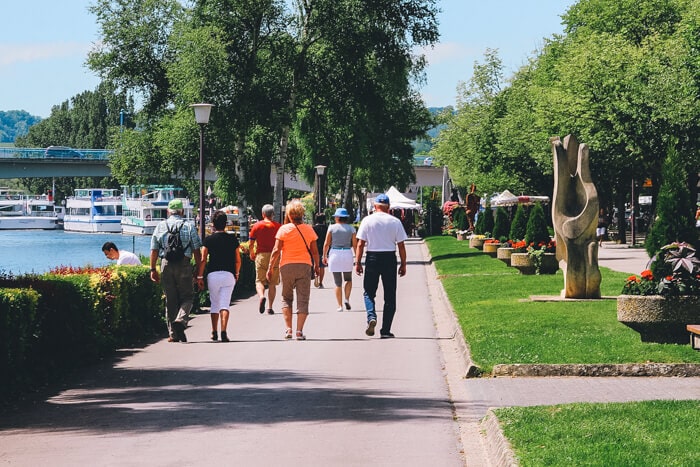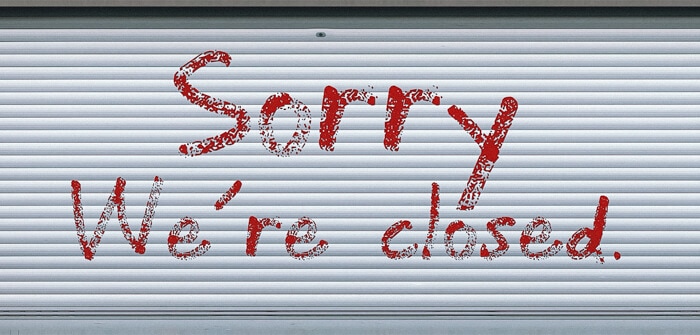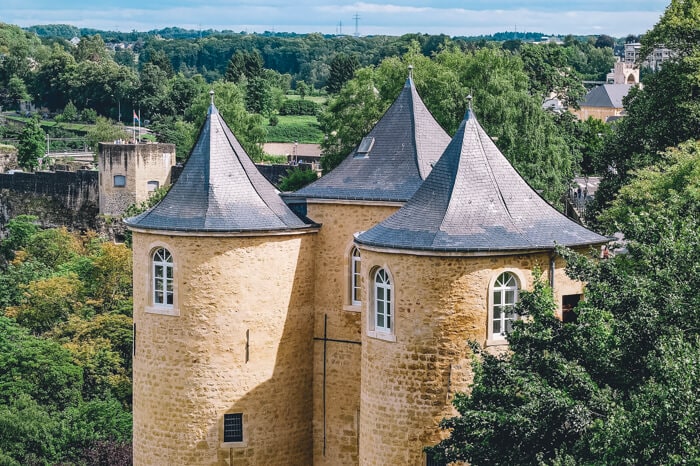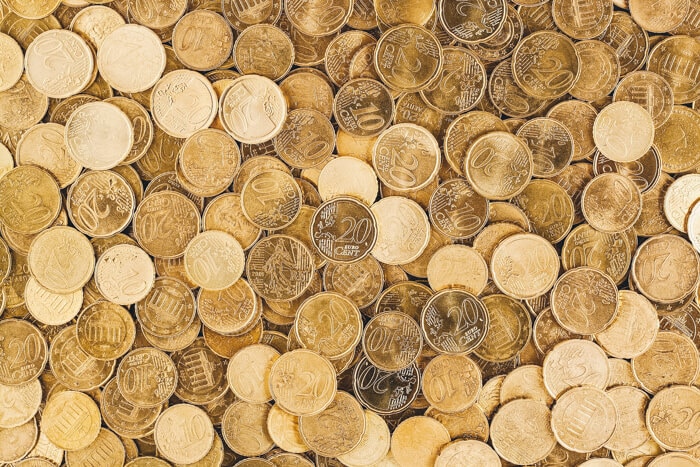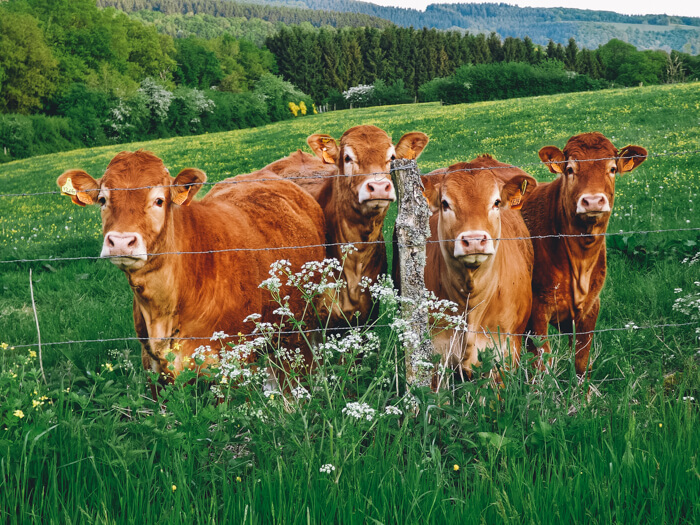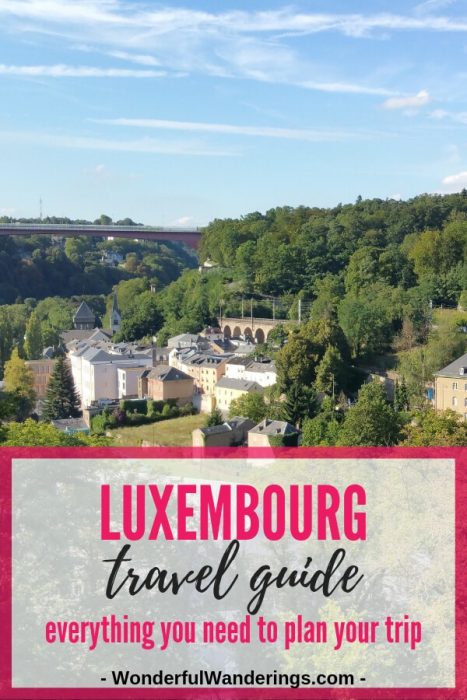Planning your Luxembourg holidays? Awesome! This guide will help you with that.
The Gran Duchy of Luxembourg might be tiny, but it plays an important role in the running of modern day Europe. It was a founding member of the European Union, OECD, United Nations, NATO, and Benelux and is home to a number of European political institutions, including the European Commission and the European Parliament.
Wedged between Belgium, France, and Germany, Luxembourg doesn’t often get its turn under the spotlight. Not many people plan long Luxembourg holidays, nor is the country’ss cuisine widely appreciated. But Luxembourg has quite a mixture of cultures and languages, as well as miles on end of natural beauty. It’s time for Luxembourg to pop up on your radar.
Contents
- Luxembourg holidays: quick facts
- Luxembourg Cantons
- How to travel to Luxembourg
- How to travel around Luxembourg
- What to pack for Luxembourg
- The best time to travel to Luxembourg
- What to eat in Luxembourg
- Famous events in Luxembourg
- Bank holidays in Luxembourg
- Where to stay in Luxembourg
- Don’t forget travel insurance
- Basic phrases and their pronunciation
- Is Luxembourg safe to visit?
- The use of cash and cards in Luxembourg
- Calling abroad, WiFi and data use in Luxembourg
- Tipping in Luxembourg
- A brief history of Luxembourg
- Posts about Luxembourg
Luxembourg holidays: quick facts
Size: 2,586.4 km² or 9.986 sq mi
Luxembourg population size: ~550,000
Capital: Luxembourg City
Governmental structure: unitary parliamentary constitutional monarchy
National day: June 23
Time zone: Central European Time / UTC+1 / GMT+1
Currency: euro (EUR)
Power voltage and socket type(s): 230V, plug types F and C. If these don’t match with your devices, make sure to bring a universal adapter.
Official religion(s)/Freedom of religion: Freedom of religion. 68% of the population is Catholic, followed by non-religious citizens, Protestants, and Muslims.
Official language(s) and general knowledge of English: French, German, and Luxembourgish are the three official languages. English is widely spoken.
Drives on this side: right
International driver’s licence accepted? yes
Phone code: +352
Vaccinations needed? none other than those required for daily living in your own country
Can you drink the tap water? yes
Want to learn more interesting facts about Luxembourg? I have a whole list of them here.
Luxembourg Cantons
Up until 2015, Luxembourg was divided into three districts which were subdivided into a total of 12 Cantons. In 2015, the District system was abandoned but the 12 Cantons still exist.
1. Diekirch
Diekirch sits in the northeast of the country on the banks of the Sauer River. The town is filled with history, and you can learn all about it in the National Museum of Military History and the National Museum of Historical Vehicles. You should also visit the beautiful St. Laurentius Church, which dates back to Roman times.
2. Clervaux
Considered the cultural centre of the North, Clervaux is an enchanting Canton with a number of exciting highlights. The most prominent of these highlights is the Clervaux Castle, which sits on a rocky promontory and looks down upon the town. The castle was originally built in the 12th century and has witnessed the development of Clervaux into what it is today.
Within the castle you will find a permanent display of photographs entitled The Family of Man and a Museum dedicated to the Battle of the Bulge. Another sight worth visiting is the Abbey of St. Maurice and St. Maur.
3. Redange
The Canton of Redange is situated in the west of Luxembourg, near the Belgian border. A popular activity here is the Circular Walk. This trail starts at the town hall and runs for 8.1km, passing through Niederpallen and Ospern before returning to the Town Hall.
4. Vianden
The beautiful Vianden sits along the Our River in the northeast of Luxembourg and borders with Germany. It is best known for its gorgeous castle that looks like something out of the pages of a fairytale. Not only is the castle itself sublime, but the views over Vianden’s lush landscape are truly exceptional.
Aside from the castle, you can easily while away the hours in Vianden strolling through its cobbled streets. If you are there in the summer, you can take the chairlift up to a height of 440m for even more spectacular views of the region.
5. Wiltz
In the northwest of Luxembourg, along the banks of the Wiltz River, is the canton of Wiltz. The Jardin de Wiltz (Wiltz Garden) is a delightful green space that is well worth exploring. Alternatively, direct your attention towards the magnificent Wiltz Castle. The round Witches Tower is the oldest remaining part of the original castle and dates back to 1573.
6. Grevenmacher
Grevenmacher is a prominent wine-growing region in the west of Luxembourg. If the weather doesn’t hold out but you still want to embrace Luxembourg’s nature, you can pop over to the Butterfly Farm. Here, you will find a myriad of beautiful butterflies within a climatised enclosure. If the sun does make an appearance, then take a stroll through the town centre and sit by its Messengers’ Fountain.
7. Echternach
Over in the East of the country is Echternach, home to the picturesque Abbey of Echternach. For nature-lovers, a favourite with locals and visitors alike is the Mullerthal Trail, which stretches out over 112 km. Follow the natural paths through the forest and you will encounter caves, waterfalls and trees of all shapes and sizes.
8. Remich
Remich is located at the border triangle where Luxembourg meets France and Germany. While Remich is not renowned as a tourist hotspot, it boasts a 3 km boardwalk that runs alongside the Moselle River and is flanked by dozens of birch and cherry trees. The town itself is peppered with old buildings that can be admired as you meander through the streets.
9. Luxembourg
The capital of the country and the most populous of all the cantons, Luxembourg is where the bulk of the action can be found. The Palais Grand-Ducal is a good place to start if you plan on exploring the capital. The building is a fine example of Flemish Renaissance architecture and makes for some great photos.
Next up, head over to the markets in Place Guillaume II for flowers, food, and handicrafts. You could easily spend an entire day meandering through the historical city center, checking out the buildings and treating yourself to gourmet food in one of its many restaurants.
Read my post on things to do in Luxembourg city.
10. Capellen
Just to the west of Luxembourg City is Capellen. Back in 2002 an old brick kiln was unearthed here whilst a new Activity Park was being constructed. The kiln dates back to the 4th century and is open for public viewing. For more historical and cultural artefacts, check out the International Gendarmerie and Police Museum.
11. Esch-sur-Alzette
In the South of Luxembourg, running along the border with France is Esch-sur-Alzette, a cosmopolitan area with a energetic buzz. It is the second largest city in the country and has even been designated ‘European Capital for Culture 2022’. You’ll love spending time in the city’s shops, restaurants, and markets.
Outside of the city centre, Esch-sur-Alzette has its own share of nature. In the summer, visitors can stroll through the pleasant Gaalgebierg Park and during the winter months, you can enjoy a spot of ice-skating on the natural rink.
12. Mersch
The pride and joy of Mersch, which lies in central Luxembourg, is its castle. The castle has a rather turbulent history as it has been burned down, rebuilt and restored at several points over the years. If the weather is nice, a leisurely walk and a picnic near the natural springs in Hunnebour are a must.
How to travel to Luxembourg
Entry requirements
Luxembourg is part of the Schengen Zone – in fact, the Schengen accord was signed in Schengen, Luxembourg! This means that EU citizens can travel in and out of the country freely. US citizens may also enter Luxembourg for up to 90 days without a Luxembourg tourist visa.
Transportation
By bus
There are buses to Luxembourg from a huge number of European countries, including France, Italy, Spain, Belgium, Netherlands, Germany, Austria, Switzerland, Hungary, Slovakia, and Romania. Flixbus has loads of cheap long-distance buses that service the country.
Check here for bus routes and prices.
By train
There are trains to Luxembourg from a number of cities in France, including Paris, Strasbourg, Lyon, Cannes, Montpellier, and Nice. There is also a good connection between Luxembourg and Belgium, with regular trains to Brussels, Antwerp, Bruges, and Ghent. You can also travel directly from Germany to Luxembourg by train.
The Netherlands, Switzerland, Italy, Austria, Spain, eastern Europe, and Scandinavia all have train access to Luxembourg but these routes require changing trains at least once (usually in Brussels)
Check here for train routes and prices from within Europe.
Fly to Luxembourg
Luxembourg Airport, just outside the capital, is the country’s only international airport. It receives flights to Luxembourg from all over the world, making it easy to access Luxembourg by plane.
Check here for flight options and prices.
How to travel around Luxembourg
Independent travel in Luxembourg
Given its small size, Luxembourg is easy to travel independently. There are buses and trains that travel between the different cities and towns in Luxembourg.
While the majority of the country’s hostels and hotels can be found in the capital, the other districts of Luxembourg are also set up well for tourism. Wherever you go you will find comfortable places to eat and stay.
If you really want to be able to go anywhere wherever you want, a car is the best option to travel around Luxembourg. If you’re coming from a neighboring country you can drive your own car there. Otherwise, consider getting a rental car.
What to pack for Luxembourg
Luxembourg has four distinct seasons: winter, spring, summer, and fall. Summer can get very hot, with temperatures up in the high 20s and 30s degrees Celsius, and winter can get pretty cold, occasionally dropping below zero. Spring and fall are generally mild during the day with chilly evenings.
What to pack for Luxembourg in summer
- a raincoat
- suncream
- comfortable shoes
- good walking sandals
- light, cotton clothing
- sunglasses
- a light sweater or cardigan
- a reusable water bottle
What to pack for Luxembourg in winter
- a warm, wind and waterproof coat
- a merino woolen baselayer
- a fleece or woolen jumper or cardigan
- merino woolen socks
- merino woolen leggings to wear underneath your trousers
- waterproof, warm, and comfortable shoes
- snow boots
- a hat
- a fleece buff or a warm scarf
- warm gloves
- a reusable water bottle
What to pack for Luxembourg in fall and spring
- a lightweight rain jacket
- a jumper or sweatshirt
- comfortable shoes
- a hat and scarf (just in case)
- a reusable water bottle
The best time to travel to Luxembourg
The best time to visit Luxembourg is in summer, as this is when the weather is at its best. However, it’s also the busiest time of year so if you don’t mind a chance of rain and some cooler temperatures, consider going another time of year.
What to eat in Luxembourg
Luxembourgish cuisine has been influenced greatly by neighboring Germany, France, and Belgium. The result is a delightful blending of flavors and influences.
- Bouneschlupp – a thick soup made with potato, green beans, and bacon
- F’rell Am Rèisleck – trout in a white wine and cream sauce
- Friture de la Moselle – small freshwater fish deep fried and drizzled with lemon juice
- Judd mat Gaardebounen – a dish with salted pork, broad beans and potatoes (often served in very large portions!)
- Bouchée à la Reine – puff pastry with a creamy chicken and mushroom filling (or some other filling)
- Rieslingspaschteit – pork paté baked in pastry and served like a pie
- Huesenziwwi – hare stew with a red wine and cognac sauce
- Traipen – the bits of a pig you don’t want to think about, mixed with cabbage and bread to make a surprisingly delicious black pudding
- Gromperekichelcher – fried potato cakes, similar to a Jewish latka, often eaten with soup
- Quetschentaart – a sweet treat made with damson plums, sugar, and pastry
Famous events in Luxembourg
- Winterlights – Christmas lights festival throughout Luxembourg City (November – January)
- Luxembourg City Film Festival – a celebration of international filmmaking with over 200 film screenings (March)
- Diekirch Carnival – German-inspired carnival through the streets of Diekirch with parades, music, and dancing (February)
- Pétange Carnival – the oldest and largest carnival in Luxembourg, often bringing in around 30,000 people (March)
- Blue Express – a blues music festival spread across 11 stages in Luxembourg’s industrial heartland with headliners from all over the world (July)
- MeYouZik – a multicultural world music festival with its own festival village in Luxembourg City (July)
- De Klenge Maarnicher Festival – an international classical music festival (March-May)
- Museum Days – free entry into Luxembourg’s museum over two days, with a range of workshops and exhibitions going on (May)
- Nuit des Merveilles – a festival dedicated to street art, with performers from all different genres (July)
- Mettelälterfest – a Medieval themed festival at the castle in Useldange with combat re-enactments, music, and food
- New Year’s Day
- Good Friday
- Easter Monday
- May Day/Labour Day
- Ascension Day: 30 May
- Whit Monday: 10 June
- National Day (Grand Duke’s Birthday): 23 June
- Assumption Day: 15 August
- All Saints’ Day
- Christmas Day
- St Stephen’s Day (Saint-Étienne): 26 December
Bank holidays in Luxembourg
Where to stay in Luxembourg
I almost always use Booking.com to book hotels or guesthouses as it allows me to really filter down based on the criteria I find important to find a place to my liking. If want to book accommodation in Luxembourg, I highly recommend you check there.
When I want to book an apartment rather than a hotel, I use Airbnb.
Don’t forget travel insurance
No matter how well you plan and research a trip, there are always things that happen beyond your control. Something might get canceled, you can get ill or hurt while traveling or one of your electronics might break or get stolen. When misfortune strikes, travel insurance has got you covered. I’ve had ongoing travel insurance ever since I started traveling to make sure I’m covered for every trip I go on. Don’t have insurance yet? You can get a free quote here:
Basic phrases and their pronunciation
As German and French are two of the three official languages of Luxembourg and English is widely spoken, you should be fine using any of these. Check out my Germany page for basic phrases in Germany (coming soon!) and my France page for basic phrases in French.
Is Luxembourg safe to visit?
Luxembourg is one of the safest countries in the world and there are no specific precautions you need to take when visiting. As with anywhere in the world, petty theft does occur so keep an eye on your valuables in crowded areas.
The use of cash and cards in Luxembourg
Both cash and cards are used everywhere in Luxembourg although you may need to stick with cash when purchasing things at markets.
Calling abroad, WiFi and data use in Luxembourg
Those with a SIM card from a country that’s part of the EU don’t have to pay roaming charges when calling, texting, or using data in Luxembourg. The same goes for some global phone plans.
If you don’t have a EU SIM but still want to have unlimited WiFi, check out Solis Wifi.
Skyroam offers both day passes and monthly subscriptions providing you with 4G on your trips. I’ve been using their daily passes not just when I travel outside the EU (no roaming charges for me in the EU) but also as a backup for when I think I’ll go over my phone’s data plan.
Check out Solis Wifi here.
Tipping in Luxembourg
While a service charge is usually included in the bill, not tipping is still seen as a sign of dissatisfaction with the service you’ve received so giving a (small) tip is recommended. This article will give you an idea of what to tip who when and where.
A brief history of Luxembourg
The history of Luxembourg starts in the year 963 when the Count of Ardennes purchased Luxembourg Castle and built a small town around it. This town gradually grew until a whole country was formed. By the 1300s, Luxembourg had become an established European power.
From the mid-1400s onwards, Luxembourg was controlled by various European powers until it was granted Grand Duchy status in 1815. Later, the country was occupied by Germany during the First and Second World Wars and remains heavily influenced by Germany and German culture.
Nowadays, Luxembourg is a beacon of political stability and economic strength. It homes a number of important European institutions and has a high per capita income. The country also acts as a mediator on occasion between France and Germany.
Posts about Luxembourg
Click here for all the posts I’ve written about Luxembourg.
PIN FOR LATER
This page contains affiliate links. If you buy something through these links, I earn a small commission at no extra cost to you.

